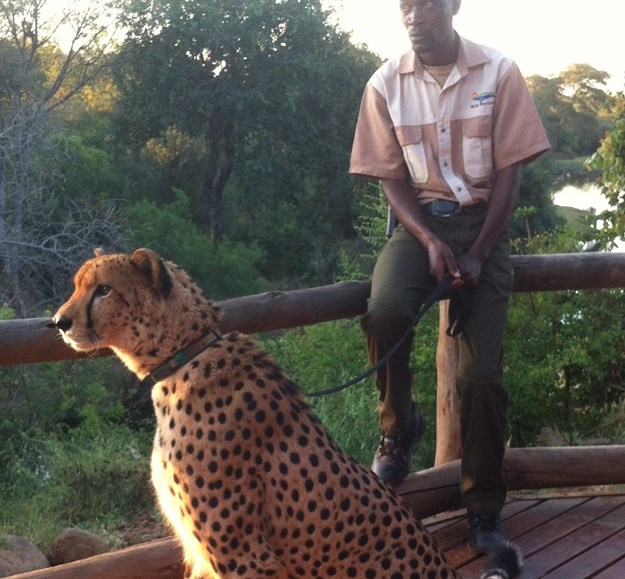In a bid to build skills, create job opportunities and promote conservation in Botswana, the non-profit Amarula Trust is funding field guide training for a group of eight young people. They will complete the course, presented by Eco Training, on 4 October.
They are the eighth group in Botswana to be sponsored by the trust, bringing the total number of students to receive such training in Southern Africa to 103. Amarula, currently the world's number two cream liqueur, is produced by the South African-based Distell Group. Its sponsorship forms part of an investment in the communities where it trades.
The 33-day intensive BOTA-accredited Level 1 guiding course covers botany, ecology, zoology and geology, as well as tracking, conservation and guiding, thereby equipping candidates to work as professional guides at lodges and other tourist facilities in Botswana.
Talent for guiding
According to Mothusi Molokomme, managing director of Distell Botswana, the field guiding candidates undergo a rigorous application process before being accepted for the course. They also have to exhibit a talent for guiding to be considered. Some of them were previously employed as gardeners, general lodge staff, camp groundsmen or as assistant guides.
"Many of the candidates have an established skill cultivated from a young age that has been taught to them by their elders. This has given them a head start in becoming bush-savvy, understanding how to track animals and knowing their habitat," Molokomme said.
"The field guiding programme formalises, expands and deepens their knowledge, making the students a valuable asset to employers. When these participants return to their establishments they can be employed as skilled guides, continue their education to become instructors in guiding and even encourage others to consider guiding as a sought-after profession."
He stressed that the need for qualified people to engage with tourists was vital for the industry. "We are very passionate about conservation and creating sustainable enterprises. By empowering these participants they can share their knowledge with their immediate communities, and so promote the importance of conservation that is critical for the continuity of tourism in our country."
Guard resources
"After all, without our animals and plant life, there will be no tourists and ultimately no jobs for anyone working as guides and within lodges. It's our task to guard our natural resources and people," Molokomme explained.
Participant Thusoyaone Moeng (34) believes her selection would fast-track her development. "I would never have been able to afford a course such as this. Many doors will now be opened for me. I am currently working as an assistant guide at the Chobe Game Lodge and now I can be promoted to a fully-fledged professional guide.
"My dream is to one day own a lodge that gives guests the ultimate experience of living in the bush, similar to my experience now at the Mashatu training camp. I also want to expose local children to wildlife, teach them about conservation and cultivate a love for protecting our country's biggest asset," she said.












































